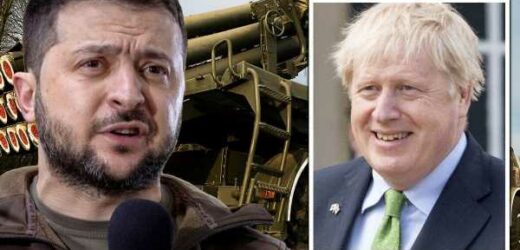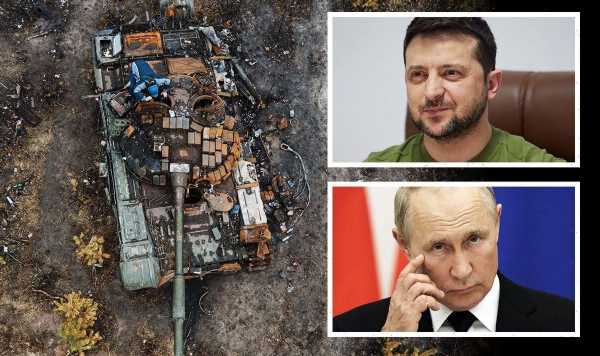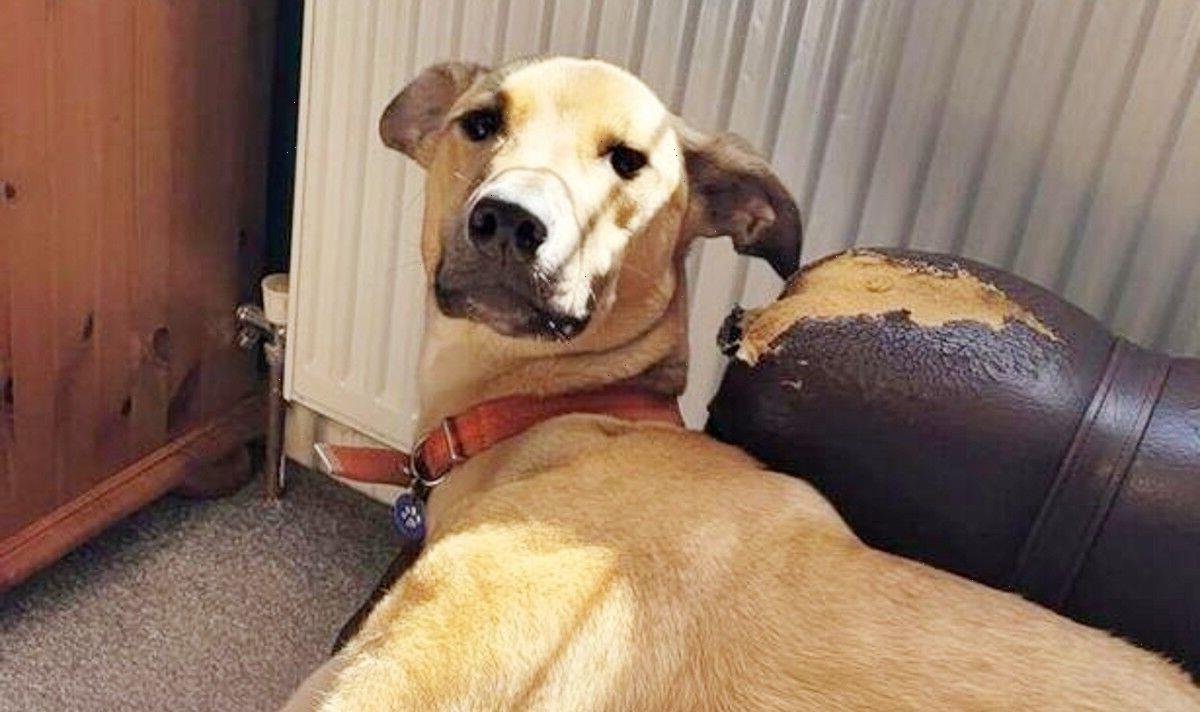Ukraine: NATO and EU set to supply 'more lethal' weapons
We use your sign-up to provide content in ways you’ve consented to and to improve our understanding of you. This may include adverts from us and 3rd parties based on our understanding. You can unsubscribe at any time. More info
Prime Minister Boris Johnson has been leading the way in sending weapons shipments to Kyiv to help fight the Russian invaders amid Vladimir Putin’s brutal war. Britain pledged in April to send 800 more NLAW anti-tank missiles, along with extra Javelin anti-tank systems and Starstreak air defence systems. The weapons included in the £100million package built on the 4,200-plus NLAW anti-tank bazookas and the Starstreak anti-aircraft systems provided in an earlier £300million package.
Pavlo Kukhta is a Ukrainian energy advisor who has also been fighting on the frontline during the war.
He told Express.co.uk: “The UK’s support is well appreciated here.”
Mr Kuktha also said he was a particularly big fan of the analogue missile launchers that Britain has shipped over, saying that these weapons are “pretty good”.
He added: “I have also seen some British volunteers.”
Last month, Defence Secretary Ben Wallace confirmed that Britain would send a “small number” of Stormer missile launchers to Ukraine.


Stormers are armoured vehicles fitted with launchers for anti-air missiles.
Stormers are fitted with armour plates to protect them against arms fire and shell fragments.
They weigh 13-tonnes and fire Starstreak, a high-velocity missile that can obliterate targets using three laser-guided darts.
While the UK has been leading the charge with its support for Ukraine, Germany has come under fire for lagging behind.
Chancellor Olaf Scholz Scholz faced mounting criticism at home and abroad over his government’s failure to deliver heavy weapons to Ukraine and other countries. Including Britain, stormed ahead.

The Chancellor had argued that Germany’s own military’s stocks were too depleted to send any heavy battlefield weapons, such as tanks and howitzers, while those the German industry said it could supply could not be put into use easily.
When challenged over Germany’s failure to deliver heavy weapons, Mr Scholz said last week that NATO must avoid a direct military confrontation with Russia that could lead to a Third World War.
Although Germany’s lower house of parliament has overwhelmingly approved a motion to send heavy weapons to Ukraine at the end of last month, it is clear it mulled over the decision far longer than Britain..
But this is not the only area where the UK has been far ahead in showing its support for Ukraine.
DON’T MISS
Putin outsmarts EU as oil still being delivered via backdoor route [INSIGHT]
Germany strikes huge energy deal with India to slash Russia reliance [REPORT]
VDL faces nightmare as EU rebels refuse to back sanctions [REVEAL]


The UK also pledged to phase out Russian oil back in March.
Mr Kukhta said: “In general the UK is faster at all these things than the other countries.”
Meanwhile, only this week has the EU put forward a motion to ban Russian oil after mulling over sanctions for months.
But Mr Kukhta did recognise that was far easier for the UK to commit to slashing energy ties with Russia as it is far less reliant on its imports.
Germany was one of the most reluctant to agree to EU sanctions and has previously said it would not be able to cope.
But Vice-Chancellor Robert Habeck has now said the country is ready in a major shift on its position.
This without much dismay to Kyiv in the weeks leading up to the change in stance, with President Volodymyr Zelensky accusing Germany of prioritising “economy, economy, economy” over the people of Ukraine.
Source: Read Full Article


